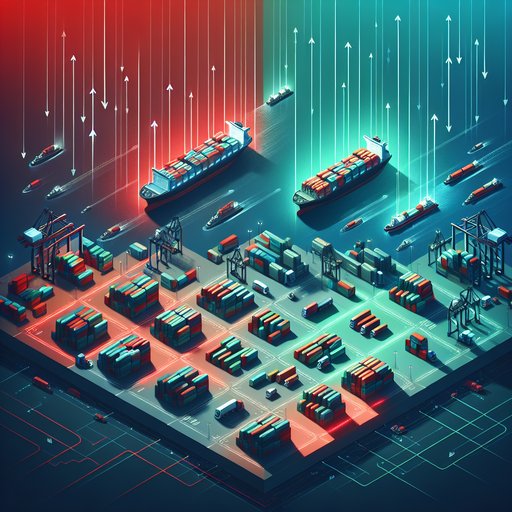
Global markets are reeling from the latest escalation in US-China trade tensions after President Trump threatened to impose a 100% tariff on Chinese imports. The announcement sent shockwaves through international markets, with the world's wealthiest individuals losing nearly $70 billion in a single day [1]. While Treasury Secretary Bessent suggests negotiations may still avert the tariffs [2], Beijing has warned of potential countermeasures [3].
The immediate impact of the tariff threat has rippled through various sectors of the economy. Retailers are already showing caution in their holiday hiring plans due to rising tariff costs and economic uncertainty [4]. The automotive and technology sectors are particularly vulnerable, with Tesla's affordable EV initiatives hampered by tariff uncertainty and rare earth mineral supply challenges [5].
China's response to previous trade restrictions has demonstrated remarkable resilience, with the country successfully diversifying its export markets beyond the United States [6]. This adaptation suggests that new tariffs might not achieve their intended effect of pressuring Beijing into concessions. The tension is further exemplified by China's recent probe into Qualcomm's Autotalks deal [7].
The technology sector has been hit particularly hard, with industry giants bearing the brunt of market reactions. Tech billionaires including Elon Musk, Jeff Bezos, and Mark Zuckerberg experienced significant wealth declines as AI and tech stocks tumbled in response to the escalating trade tensions [1].
Some companies are adapting to the new reality by focusing on domestic production and supply chain resilience. A notable $75 million project is breaking ground with the explicit strategy of building stability in the face of global trade tensions [8], demonstrating how businesses are seeking to insulate themselves from international trade volatility.
- The world's 10 richest people lost nearly $70 billion in Friday's market rout
- Trump-Xi meeting still on despite trade tensions, says US’s Bessent
- China accuses US of 'double standards' over tariff threat
- Uncertainty over economy, tariffs forces retailers to be cautious on holiday hiring
- Tesla's 'most affordable' EVs still cost more than $35,000. These policies may be why.
- Trump bet China would face ‘tremendous difficulties’ without U.S. consumers—Beijing just focused on the rest of the world instead
- China probes Qualcomm's Autotalks deal amid rising US trade tensions
- Company breaks ground on $75 million project that could help transform US trucking industry: 'At the very front lines of a global trade war'
























